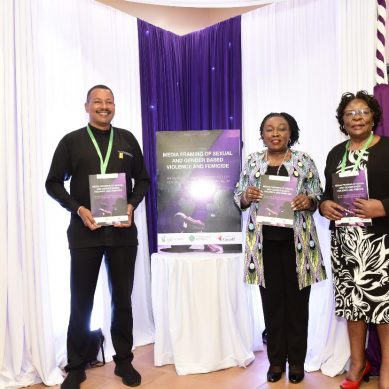
Kenya is still grappling with historical land injustice that sometimes fuel ethnic conflicts and in recent years, post-election violence, a national conference on land reforms heard on Wednesday.
However, the executive and legislature have been foot-ragging on enactment and implementation of the land-related laws as provided for in the 2010 Constitution to anchor the reforms, says Principal Judge of the Environment and Land Court (ELC), Justice Oscar Angote.
Justice Angote has consequently called for urgent enactment of pending legislation under Article 68 of the Constitution on landholding ceilings and facilitate cooperation between the Ministry of Lands and National Land Commission (NLC).
The judge was addressing the Fourth Regional Research Conference at the Kenya School of Government in Nairobi, convened to assess the legal, policy and institutional progress achieved since the 2010 Constitution.
The judge said the judiciary’s central role is the advancement of land reforms and appealed for enhanced institutional collaboration to secure land rights and redress historical injustices.
“Land is the soul of our heritage and the anchor of our identity. The 2010 Constitution marked a turning point, shifting our approach from treating land as a mere commodity to viewing it as a tool for equity and justice,” said Angote.
He further cited critical jurisprudence from the ELC and the Supreme Court, including rulings that nullified fraudulently acquired titles, clarified the limitations of the bona fide purchaser doctrine, besides holding the state accountable in compulsory acquisition cases.
Angote said courts have gradually moved away from rigid adherence to the Torrens system of land ownership to a more justice-oriented approach that upholds fairness and constitutional values.
“Land reform is not just administrative, it is a socio-political imperative and call for a recommitment to a governance model that promotes inclusivity, equity and future sustainability,” he said.
NLC Commissioner Esther Murugi Mathenge echoed the urgency of collective action, describing the conference as a crucial platform for reviewing the country’s policy and legal landscape on land matters.
“We must turn knowledge into action. This forum is both a reflection and a rallying call to protect and reform our land sector,” she said.
Mathenge reaffirmed the commission’s constitutional mandate under Article 67(2) (d), noting that Kenya has made progress – such as establishing the NLC and ELC.
“Serious challenges persist – such as unsustainable land use, encroachment, climate change, cultural norms and gender inequalities in land ownership and access,’’ she added.
She also pointed out that the commission has been actively working to generate evidence-based policies by hosting conferences focusing on issues like climate resilience, digital innovation and food security.
NLC Chief Executive Officer Kabale Tache Arero commended the engagement of partners in organising the event, noting that the conference presents a vital opportunity to share insights and innovations that will shape future policies.
“It is through shared knowledge and partnerships that we can strengthen land governance and deliver lasting reforms,” Arero said.
The conference, which runs until May 22, is expected to generate actionable recommendations to enhance Kenya’s land governance and accelerate reform in line with constitutional and national development goals.
- A Tell Media / KNA report / By Joan Ogolla








